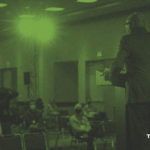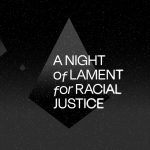This is an adapted chapter from 12 Faithful Men: Portraits of Courageous Endurance in Pastoral Ministry (Baker, 2018). In this compilation of 12 stirring biographies, pastors and ministry leaders will discover the power of grace-driven endurance in the face of suffering.
On a warm Sunday afternoon in August 1831, seven Negro slave men met for an afternoon barbecue in the woods on Joseph Travis’s plantation in Southampton County, Virginia. Their conversation lasted nearly 11 hours and was led by a strong and religious-minded slave named Nat Turner. Turner believed God wanted him to lead an insurrection to overturn the evil of slavery.
Later that evening, Turner and a band of 60 slaves attempted to make that vision a reality.
Over the course of 48 hours, this violent troop went from house to house, killing 55 white men, women, and children. After shootouts with groups of white men and some of their black slaves, many of the rebels were killed, and Turner himself was captured and subsequently hanged. He was then beheaded and publicly mutilated as a warning to other would-be rebels.
Nat Turner’s rebellion produced fear in white Americans all over the South, causing many to see every black person, slave or free, as a violent threat. Both Virginia and North Carolina passed laws making it a crime to teach blacks—literacy was thought to be a significant factor in rebellious thinking. North Carolina went further, preventing all blacks, slave or free, from preaching, teaching, or leading any gathering.
These new laws institutionalized white fear. Legal freedom didn’t protect black citizens from being lumped in with slaves in these laws. Free blacks who lived productive and noble lives alongside their white neighbors were vulnerable in the face of the fearful impulses of racism. Even a black man of well-known spiritual character, who counted among his closest friends and acquaintances leading white citizens, could find himself defenseless to racialized fears and irrational overreaction.
This was the experience of the early 19th-century African American Presbyterian preacher and well-respected educator John Chavis.
Breaking Stereotypes
John Chavis doesn’t fit the modern-day stereotype of a black man in 18th-century North Carolina. Though the precise details of his birth and early life are debated, Chavis was born in either 1762 or 1763 and descended from free black settlers in Granville County, Virginia. His ancestors were property owners who were educated and respected in their communities.
Chavis was likely reared near the Presbyterian settlement of free blacks in North Carolina known as White Hall. Tom Blackwell, the principal landowner in the settlement, advocated for education, so there were cultural influences that would’ve helped Chavis value education. Additionally, Chavis’s ancestors were literate, so education was evidently a valued part of his family’s legacy.
There’s great reason to believe Chavis spent his later childhood and early teen years under the tutelage of the esteemed Presbyterian minister Henry Patillo, as a student in his Latin grammar school called Granville Hall. Patillo was a patriot and influential pastor.
In a spirit of patriotism, Chavis enlisted in the Continental Army in 1780 at the age of 17—which was unusual for young black men, as they weren’t typically seen as friendly toward the patriot cause. No doubt, Chavis’s family legacy as property owners factored into his enlistment success. Chavis thus served faithfully in the Revolutionary cause for three years.
Keen Mind, Gifted Preacher
After the war, Chavis went on to serve as a Latin and Greek tutor, impressing everyone with his academic promise and potential. He was eventually sent to study at Princeton as the private student of its president, John Witherspoon. Witherspoon had signed the Declaration of Independence and valued open and free inquiry. So Chavis was nurtured in a Presbyterian faith anchored both in intellectual rigor and also in a robust commitment to the American republic.
Though for many years there had been resistance to evangelizing African slaves, by the end of the 18th century many Presbyterian ministers were under conviction to proclaim the gospel to them—and Chavis’s mentor, Patillo, was of that mind. Patillo advocated for Chavis. In October 1800, Chavis became the first black man in America licensed to preach by the Presbyterian Church.
In October 1800, Chavis became the first black man in America licensed to preach by the Presbyterian Church.
When all black leadership in North Carolina was outlawed, as mentioned above, the legal ground on which Chavis operated and provided for his family imploded beneath him. All the securities that education, character, hard work, and reputation promised were erased in a flash—by a law that seemed written with him in mind.
No one had called John Chavis a derogatory name. He hadn’t been threatened with violence. None of the actions commonly designated as racist were directly employed against him. But because he was forbidden from teaching black students and from preaching to black congregants, Chavis’s white-student families quickly removed their children from his tutelage, and his employment was a memory.
Failure of Brotherly Love
The racism Chavis experienced was ultimately a breakdown in brotherly love. That’s what makes racism both wicked and demoralizing—it violates the biblical command of love for neighbor, which in turn violates the command of love for God.
Chavis died in 1838, and the circumstances of his death are clouded in speculation. There’s no triumphant moment in his story, no sense that he or his friends overcame the racism of his times. Racism, it seems, won the day.
Shouting out to us from the early 19th century, then, John Chavis’s story summons us as Christians to examine our actions in the face of injustice and to cast our gaze more broadly. In Chavis we see an exceptional individual. But in his story we also see how the most exceptional individuals can suffer from a society gripped by fear.
Is there enough evidence for us to believe the Gospels?
 In an age of faith deconstruction and skepticism about the Bible’s authority, it’s common to hear claims that the Gospels are unreliable propaganda. And if the Gospels are shown to be historically unreliable, the whole foundation of Christianity begins to crumble.
In an age of faith deconstruction and skepticism about the Bible’s authority, it’s common to hear claims that the Gospels are unreliable propaganda. And if the Gospels are shown to be historically unreliable, the whole foundation of Christianity begins to crumble.



































